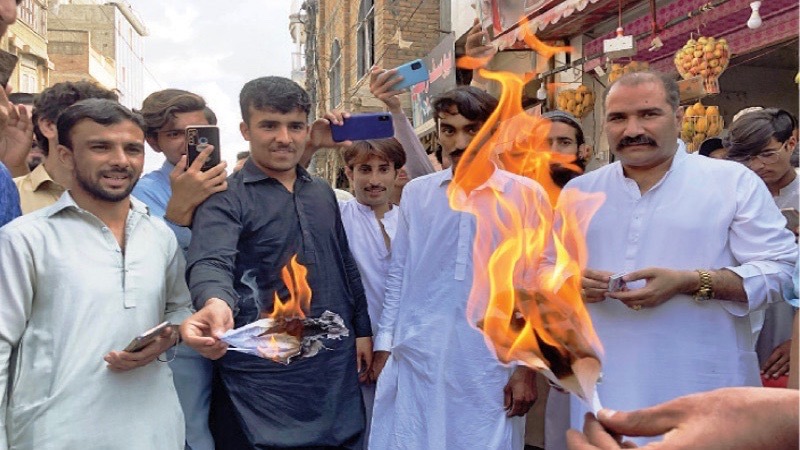Trade unions and workers in Pakistan are mobilizing against the rise in power tariffs in the country. Towards the end of August, demonstrations took place in cities like Karachi, Multan, Lahore, Rawalpindi, and Islamabad where thousands protested against increased electricity bills. Protesters in some places burned their bills and refused to pay higher rates for electricity.
In July, the National Electric Power Regulatory Authority (NEPRA) of Pakistan approved a national average power tariff hike of PKR 4.96 per unit for the current fiscal year. “The revised national average tariff for the FY2023-24 has been determined as Rs. 29.78/kWh, which is Rs. 4.96/kWh higher than the previously determined national average tariff of Rs 24.82/kWh,” the power regulator said in a press release.
According to the new rates, households consuming less than 100 units of electricity in a month will see the unit rate increase from PKR 13.4 to 18.36. For consumers using under 200 units, the tariff has been set at PKR 23.91. The charges for households consuming more units have been similarly increased in different slabs. The highest increase is of PKR 7.5 for those consuming 700 units or more with the rate hiked to PKR 42.7 per unit.
The series of protests prompted interim Prime Minister Anwar ul Haq Kakar to summon an emergency meeting on August 27 to review the situation. However, the caretaker government under him is yet to come up with any announcement.
Anger against the increased prices is growing on the streets.
A successful protest organized by HKP on Ferozepur road, Lahore against #ElectricityBills. The anger against inflation is palpable and unprecedented. People will not pay for the luxuries of a few. Pakistan is on the edge of a major popular revolt. pic.twitter.com/7TmTWlUKAM
— Ammar Ali Jan (@ammaralijan) August 29, 2023
Political parties such as the Awami National Party and the Jamaat-i-Islami have called for nationwide protests on September 2. The Haqooq-e-Khalq Party (Peoples’ Rights Party) has announced a workers’ strike in Lahore on September 5.
Power tariffs in Pakistan have surged by up to 76% over the period of a year due to IMF-mandated structural adjustment required to avail a bailout of USD 3 billion. According to Taimur Rehman of the Mazdoor Kisan Party, the raising of electricity tariffs is especially disastrous for small-scale businesses. “Many areas will be submerged in complete darkness especially in Balochistan, where there is already a power crisis and the shortages go up to between 12 to 16 hours. However, in areas where electricity comes regularly, due to the increased prices the poor can barely afford it now,” he said.
Some protesters claimed that their power bills in July were higher than the house rents and expressed concern over the rising cost of living. “We reject these hikes in power tariffs…Policies that are anti-people, we don’t accept them,” said an activist at a protest in Punjab.
According to reports, protesters have violently targeted power company representatives in some places. The authorities reportedly increased the electricity tariffs to counterbalance the 5% depreciation of the Pakistani rupee in August, raising concerns of even higher inflation, which in July stood at 28%.





